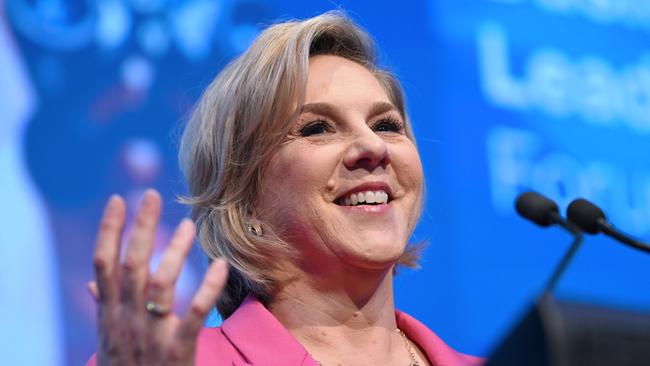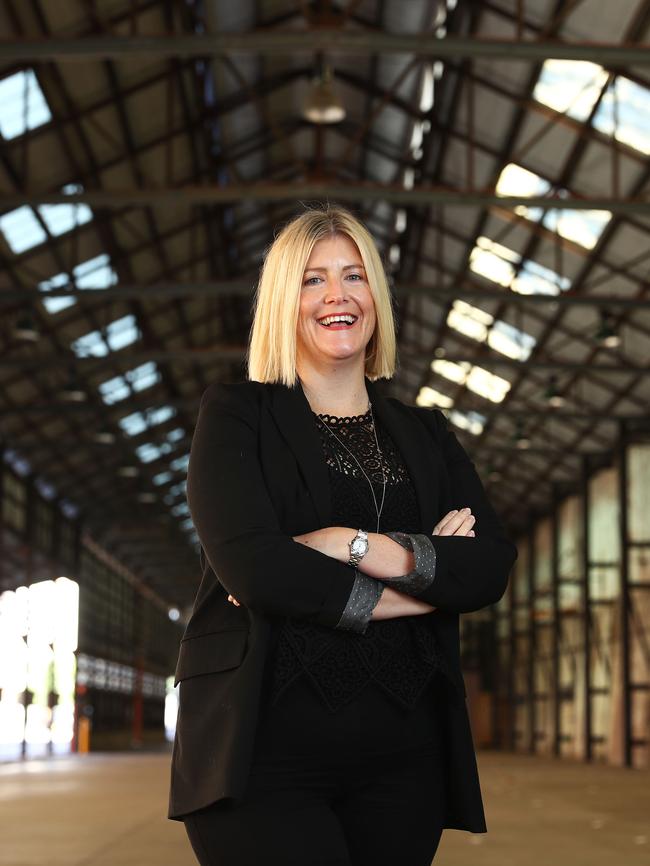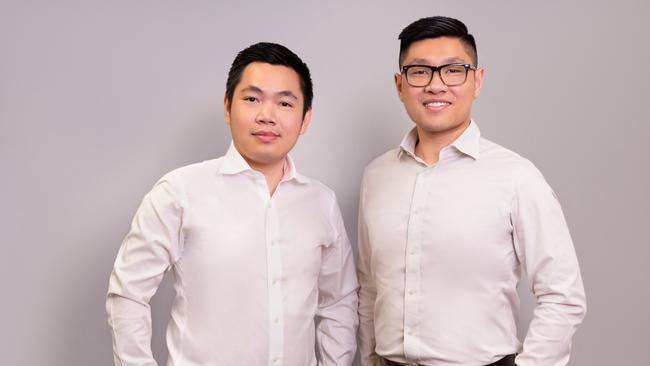Tesla’s Robyn Denholm calls for tax shake-up to support Aussie innovation
The Tesla chair says the AI boom presents exciting opportunities for Australian entrepreneurs and the nation. But the much-hyped economic benefits aren’t a given.

Robyn Denholm says start-ups need greater access to funding via direct government investment programs or tax system changes to keep fledgling entrepreneurs in Australia and make the nation more competitive.
The Tesla chair and Blackbird Ventures operating partner’s latest role is guiding Sydney-based healthcare tech start-up Harrison.ai’s international expansion.
Harrison.ai has built its own artificial intelligence model that is tailored for radiographers, transforming the way medical imaging is performed. So powerful is its model – which effectively gives doctors a second set of eyes – that it has been touted as outperforming ChatGPT and Google’s Gemini in radiology examinations.
The company shows how Australia can take on US tech titans in the AI gold rush. But Ms Denholm said despite the significant economic opportunities that the AI boom presents, Australia needed more workers and funding to ensure it remained competitive. Her comments come as the Tech Council of Australia has called for changes to superannuation rules to allow funds to make more calculated risks and back start-ups.
Ms Denholm said AI could create up to 200,000 jobs by 2030, while increased use of generative – or conversational – AI could inject $115bn into the national economy, citing Tech Council research. The federal government has forecast AI will generate a gain of up to $600bn – a quarter of Australia’s GDP – by the end of the decade.
But Ms Denholm said the economic benefits weren’t a given.
“Creating a competitive environment where start-ups and scale-ups can grow and succeed globally will deliver significant benefits to Australia,” she said.
“We need strong education, migration and training pipelines to ensure start-ups can draw on the best talent. Greater access to funding, whether it be through expanding direct investment programs, changes to the tax system, or exploring other models that have been successful internationally, is necessary to support companies.”

Tesla received funding from the US government during its early stages. It has since grown into a $US721.23bn ($1.1 trillion) company.
Sally-Ann Williams – a former Google executive who now heads Australian deep tech incubator Cicada Innovations – has also called on the federal government to adopt a US-style approach, citing America’s Small Business Innovation funding program, which was established in 1982.
It comes amid a subdued capital raising environment.
While KMPG head of high growth ventures Amanda Price said green shoots were emerging, but overall VC-led raising was yet to roar back following the slump after the pandemic-fuelled boom.
Australian venture capital investment increased from $US1.2bn to $US1.4bn in the half year to June 30, according to KPMG’s latest VC Pulse report. But the industry lost steam in the past three months, easing to $US727.3m, from $US723.1m in the same period last year. Tech Council of Australia chief executive Damian Kassabgi called for regulatory changes to allow super funds to make more VC-like investments.
“Anyone that was able to put even a cent of their wealth into early stage Canva – whether you’re Blackbird or someone else – is not disappointed by that investment,” Mr Kassabgi said. Canva is valued at about $40bn, following an oversubscribed share sale earlier this year.
“That investment would have returned a multiple 10, 20, 40 times more than if were you to have put that in stock. So it’s not irresponsible to be thinking about investment from a superannuation perspective. We’ve looked at this, and even if 1 per cent of superannuation was going into VC-style investment, that’s about $15bn of investible capital right now in Australia.
“It seems that because of the structures we put around superannuation, there is little incentive in the system to invest that into ventures that go through what I would call R&D (research and development) and VC-type activity. So there is absolutely fertile ground in that space.”
Ms Denholm there were “exciting opportunities for founders and start-ups in Australia as AI inspires a new era of products, solutions and services”, highlighting the success of Harrison.ai and underscoring the need to strike the right policy settings.
“Ideas that wouldn’t have been thought of a decade ago are now possible,” she said.
“Harrison.ai is an example of the opportunity that AI represents to both Australian technology companies but also the massive productivity gains for traditional industries such as healthcare.
“Emerging companies can also leverage AI internally to improve efficiency, such as automation or streamlining complex tasks. These productivity gains can benefit the business at a critical stage.”

Harrison.ai was founded by Sydney brothers Aengus and Dimitry Tran, who came to Australia as young boys from Vietnam. Ms Denholm joined the company as director last year. Its artificial intelligence model, Harrison.rad. 1, can perform a variety of functions including open-ended chat related to X-ray images, detecting and localising radiological findings, and generating reports, providing longitudinal reasoning based on clinical history and patient context.
The company says it performed on par with accredited and experienced radiologists, at 51.4 out of 60. This compares with competing models such as OpenAI’s GPT-4o, Anthropic’s Claude-3.5-sonnet, Google’s Gemini-1.5 Pro and Microsoft’s LLaVA-Med, which score below 30 on average.
“The Harrison.rad. 1 model is transformative and an exciting next step for the company. Harrison.ai is delivering on the promise of helping solve real-world problems more effectively and reliably and helping to save lives,” Ms Denholm said.
Harrison.ai co-founder and chief executive Aengus Tran said the company’s existing radiology product, Annalise.ai, has been cleared for use in more than 40 countries.
“AI’s promise rests on its foundations – the quality of the data, rigour of its modelling and its ethical development and use. Based on these parameters, the Harrison.rad. 1 model is groundbreaking,” Dr Tran said.
He said Harrison.rad. 1 was unlike existing generative AI models, which were “functionally generic and predominantly trained on general and open-source data”.
Dr Tran said Harrison.rad. 1 was trained on real-world, diverse and proprietary clinical data, comprising millions of images, radiology studies and reports – making it the “most capable specialised vision language model to date in radiology”.






To join the conversation, please log in. Don't have an account? Register
Join the conversation, you are commenting as Logout